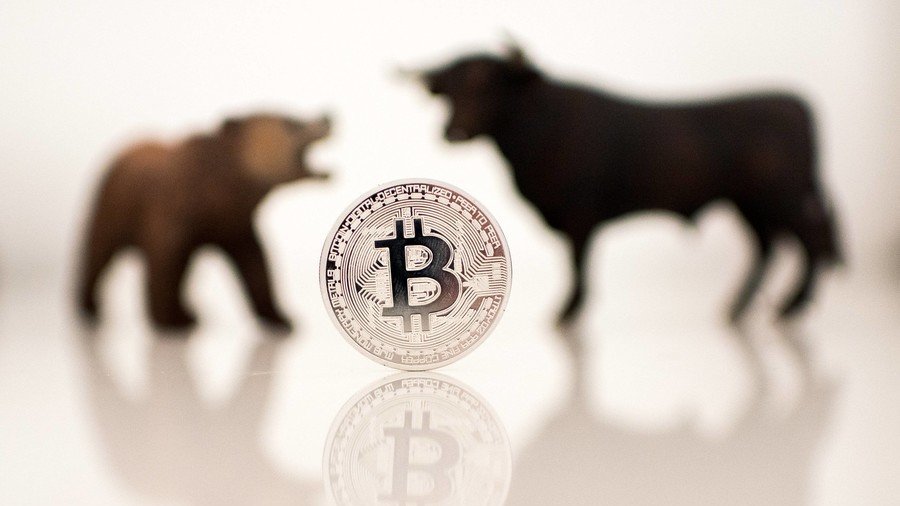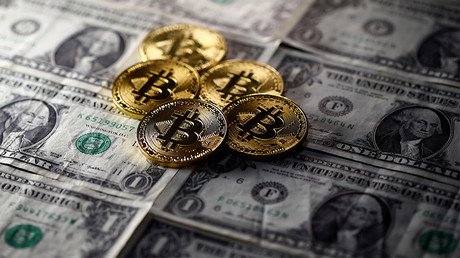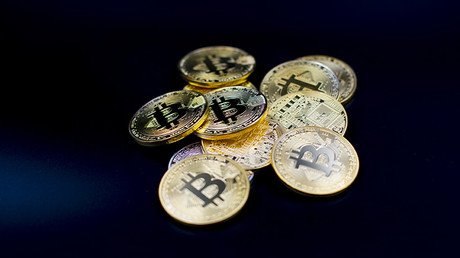No way to stop adoption & acceptance of bitcoin - Max Keiser

Bitcoin’s recent price swings have intensified the debate about the phenomena of virtual currencies, with skeptics warning off investors, while enthusiasts see a future in the asset.
On Friday, the price of bitcoin plunged from the dizzying heights of around $20,000 earlier this week to below $12,000. Within 24 hours, the value of the world's leading cryptocurrency dropped 40 percent, according to CoinMarketCap data.
While bitcoin skeptics are saying I told you so, the currency’s supporters insist the fall symbolizes a white sale that gives potential investors a chance to buy bitcoin at lower price and cash in later.
RT has discussed bitcoin’s ups and downs with Max Keiser, host of RT’s Keiser Report and Doctor Jack Rasmus, professor of Political Economy at St. Mary's College in California and the author of the new book Central Bankers at the End of Their Rope?
“It’s not going to be the currency of the future because the central banks will start issuing their own digital currencies before it threatens the money supply. But it is definitely a speculative commodity bubble. Bitcoins and other cryptos are a commodity play, much like gold, in fact, they’re sucking a lot of money, capital investment out of the gold market, and it’s a speculative play, and I think it’s going to go higher. But it is a speculative bubble, and the key question is will it pose some sort of danger to the financial asset markets in general,” said Dr.Rasmus.
Max Keiser insists that “what’s driving the action at bitcoin is people who are looking to store value and escape the US dollar, which is a tulip bulb of our era. The stock market and bond market are the tulip bulbs of our era. The tulip bulb of 1630 was driven by highly leverage transactions, that’s what gave us tulip bulb mania of 1630. Bitcoin is the opposite of that.”
Tech nerds, privacy nuts & criminals are the only people #bitcoin is good for – ING analyst https://t.co/dyKGIZieImpic.twitter.com/F59FdufqX1
— RT (@RT_com) December 22, 2017
According to Dr. Rasmus speculation in Asia is behind the problem.
“Margin and retail buyers in Japan are driving this market. It is not the tech nerds in the US. And whenever you get extreme margin buying, you are going to get a lot of volatility. And it is going to collapse. Most of this trade is located in Japan, and the Japanese financial authority has legitimized this. Cboe and CME are legitimizing this, and the hedge funds are jumping into this. You are going to get ETFs (Exchange-Traded Funds) as one of the things driving the stock market right now, and passive index investing when you get the ETFs in bitcoins with volatility you are going to get a psychological effect of ETFs collapsing in bitcoin, and it could spill over to the stock market and bond market ETFs. That’s a cotangent channel, and that’s a big risk,” Rasmus said.
Bubble that will 'end in tears': billionaire hedge fund manager on #Bitcoinhttps://t.co/jzmNOCmYYxpic.twitter.com/w5V9283kqi
— RT (@RT_com) November 28, 2017
German and French finance ministers called for debate at the G20 summit over the regulation of bitcoin. According to Max Keiser, the regulators can try this, but they’ll fail.
“There’s no way to stop bitcoin. It’s unstoppable. There’s nothing they can do to stop the adoption, growth, acceptance of bitcoin as a store of value, as a currency and as a unit of account. That’s the history,” Keiser said.
For more stories on economy & finance visit RT's business section















